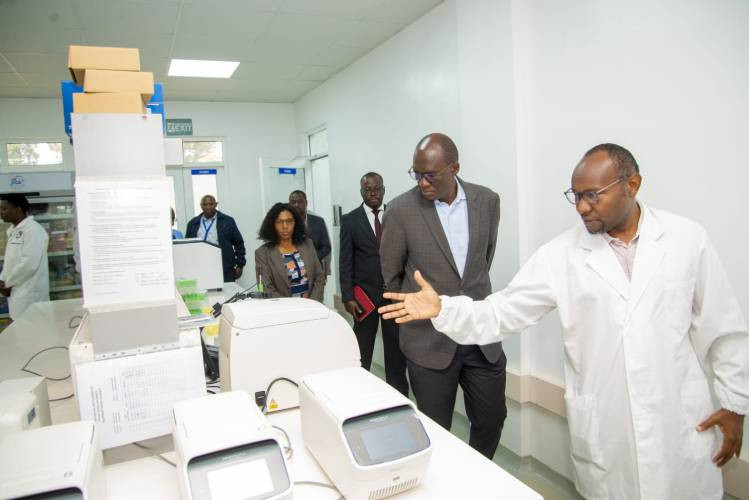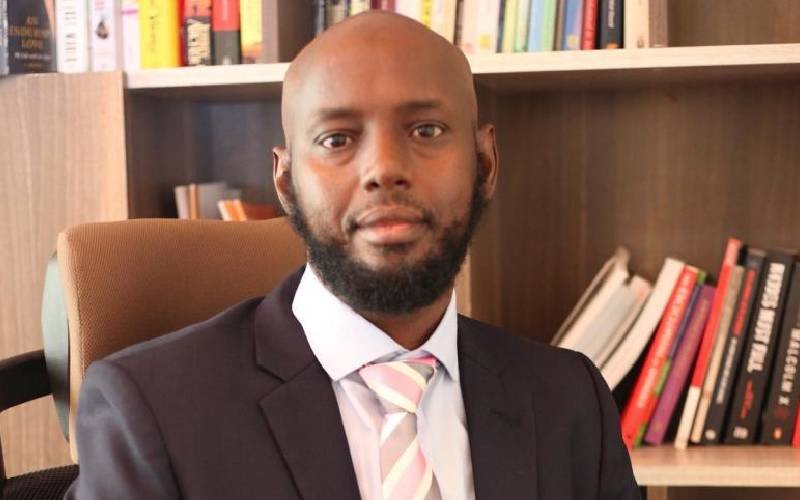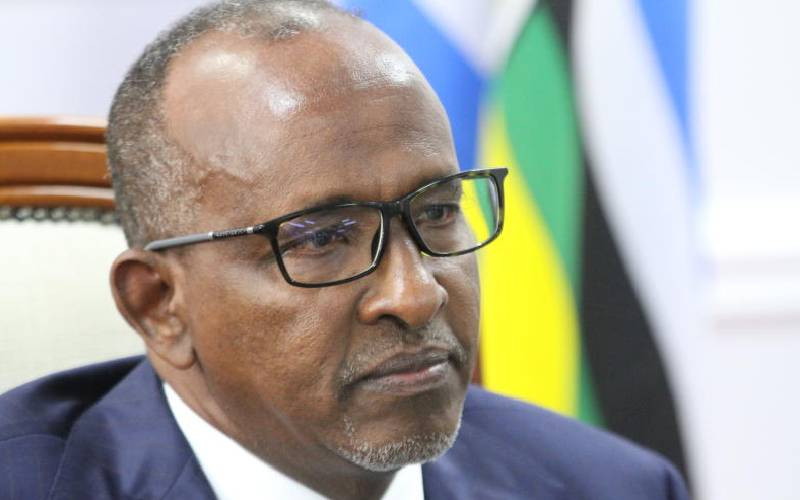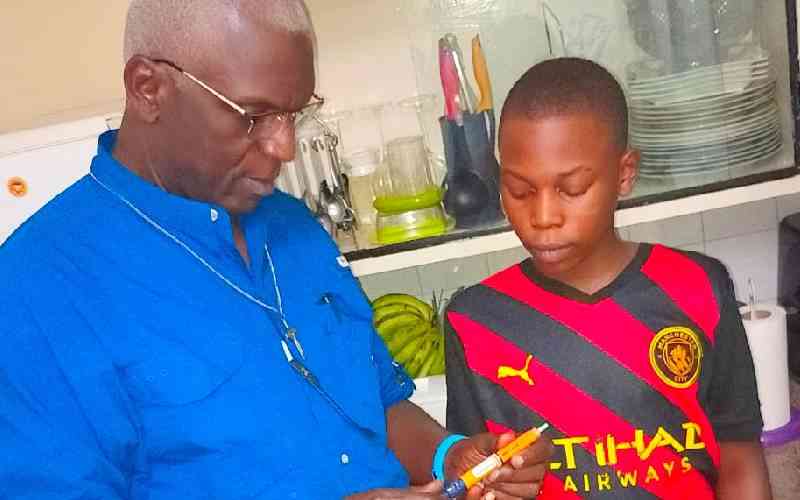
Mount Kenya University Director of Research and Innovation Prof. Jesse Gitaka takes Dr Patrick Amoth -Director General of Health at the Ministry of Health and other senior Ministry officials on a guided tour of the university’s lab. [John Muchucha, Standard]
Director General of Public Health Dr. Patrick Amoth has urged institutions of higher learning to focus on investing in science and innovation to improve healthcare, noting that this would be critical to addressing human resource gaps in the health sector.
Speaking during a courtesy call to MKU’s Thika main campus, Dr. Amoth noted that training institutions must embrace innovation and digital health technologies to improve quality and access to healthcare and actualise the country’s Universal Health Coverage (UHC) goals.
He emphasised that collaboration between government and institutions will particularly be key in capacity building, especially of training and research institutions, in a bid to enhance skills for healthcare professionals.
Dr. Amoth said the Ministry is keen to promote collaboration between the ministry and institutions of higher learning in building research capacity to respond to emerging and re-emerging diseases.
The Public Health boss said collaboration was key in realising the country’s Vision 2030 development goals, especially within the health pillar.
Mount Kenya University (MKU) Vice Chancellor Prof. Deogratius Jaganyi and MKU Director of Research and Innovation Prof. Jesse Githaka received the delegation from the Ministry.
Prof. Jaganyi said the Ministry of Health have partnered with MKU to help deliver Kenya’s Universal Health Coverage (UHC) goals by 2030.
- China backs Kenya's health sector reforms in new Sh64.5billion partnership
- Poor hygiene and fake cards fuel typhoid crisis
Keep Reading
Currently, MKU focuses on training healthcare workers to improve health outcomes across the region. These include Bachelor of Medicine and Surgery, Bachelor of Pharmacy, Bachelor of Science in Clinical Medicine, Bachelor of Science in Nursing, Bachelor of Science in Dental Technology, Diploma in Clinical Medicine, Diploma in Community Health and Development and Health Records.
He further stated that the UHC agenda is focused on four key pillars: healthcare financing, service delivery systems, health information systems and human resources for health.
He emphasised that collaboration between government and institutions will be key in realising the UHC agenda, particularly in training and research capacity of healthcare professionals.
Dr. Amoth said the ministry was committed to strengthening the partnership between the ministry and universities to build a robust healthcare system.
He said that the government would also support the training of medical professionals through increased partnerships with institutions of higher learning.
Prof. Jaganyi noted that MKU’s town campuses are well-positioned to offer practical training for students and healthcare workers using skills laboratories and simulation centres, including anatomy laboratories, hospital dental clinics and diagnostic laboratories.
He added that the university continues to prioritise health sciences education and research through collaborations such as the Joint Clinical Research Centre in Uganda and Ohio University in the US.
He added that MKU has research collaborations with the Ministry of Health and the Centre for Malaria Elimination through the MKU Thika campus.
A portion of the grants has also been used to establish the Centre for Malaria Elimination at MKU Thika campus.
Dr. Amoth urged more institutions to embrace training in new courses such as biomedical engineering and digital health to meet the evolving needs of the sector.
He further recommended MKU for its focus on offering short courses for healthcare workers on patient safety and digital health.
He said such short courses would boost the health workforce and increase access to essential healthcare services.
MKU has committed to working closely with the Ministry to ensure alignment with UHC, Kenya’s health goals and policies.
Dr. Amoth noted that healthcare workers will be critical in building the resilience of health systems by adopting innovations and digital health tools.
“It is not just about facilities and more policies. It is about the training, more training. It’s the people,” Dr. Amoth added.
 The Standard Group Plc is a multi-media organization with investments in media
platforms spanning newspaper print
operations, television, radio broadcasting, digital and online services. The
Standard Group is recognized as a
leading multi-media house in Kenya with a key influence in matters of national
and international interest.
The Standard Group Plc is a multi-media organization with investments in media
platforms spanning newspaper print
operations, television, radio broadcasting, digital and online services. The
Standard Group is recognized as a
leading multi-media house in Kenya with a key influence in matters of national
and international interest.











